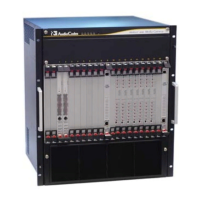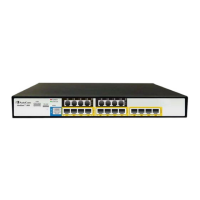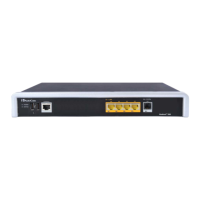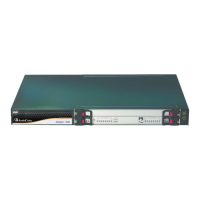Version 7.2 887 Mediant 800B Gateway & E-SBC
User's Manual 51. Automatic Provisioning
Get request. This request contains the HTTP User-Agent Header, which identifies the
device to the provisioning server. By default, the header includes the device's model
name, MAC address, and currently installed software and configuration versions.
Based on its own dynamic applications for logic decision making, the provisioning
server uses this information to check if it has relevant files available for the device and
determines which files must be downloaded (working in conjunction with the HTTP If-
Modified-Since header, described further on in this section).
You can configure the information sent in the User-Agent header, using the
AupdHttpUserAgent parameter or CLI command, configure system > http-user-agent.
The information can include any user-defined string or the following supported string
variable tags (case-sensitive):
• <NAME>: product name, according to the installed License Key
• <MAC>: device's MAC address
• <VER>: software version currently installed on the device, e.g., "7.00.200.001"
• <CONF>: configuration version, as configured by the ini file parameter,
INIFileVersion or CLI command, configuration-version
The device automatically populates these tag variables with actual values in the sent
header. By default, the device sends the following in the User-Agent header:
User-Agent: Mozilla/4.0 (compatible; AudioCodes;
<NAME>;<VER>;<MAC>;<CONF>)
For example, if you set AupdHttpUserAgent = MyWorld-<NAME>;<VER>(<MAC>), the
device sends the following User-Agent header:
User-Agent: MyWorld-Mediant;7.00.200.001(00908F1DD0D3)
Note: If you configure the AupdHttpUserAgent parameter with the <CONF> variable
tag, you must reset the device with a save-to-flash for your settings to take effect.
4. If the provisioning server has relevant files available for the device, the following
occurs, depending on file type and configuration:
• File Download upon each Automatic Update process: This is applicable to
software (.cmp), ini files. In the sent HTTP Get request, the device uses the
HTTP If-Modified-Since header to determine whether to download these files.
The header contains the date and time (timestamp) of when the device last
downloaded the file from the specific URL. This date and time is regardless of
whether the file was installed or not on the device. An example of an If-Modified-
Since header is shown below:
If-Modified-Since: Mon, 1 January 2014 19:43:31 GMT
If the file on the provisioning server was unchanged (not modified) since the date
and time specified in the header, the server replies with an HTTP 304 response
and the file is not downloaded. If the file was modified, the provisioning server
sends an HTTP 200 OK response with the file in the body of the HTTP response.
The device downloads the file and compares the version of the file with the
currently installed version on its flash memory. If the downloaded file is of a later
version, the device installs it after the device resets (which is only done after the
device completes all file downloads); otherwise, the device does not reset and
does not install the file.
To enable the automatic software (.cmp) file download method based on this
timestamp method, use the ini file parameter, AutoCmpFileUrl or CLI command,
configure system > automatic-update > auto-firmware <URL>. The device uses
the same configured URL to download the .cmp file for each subsequent
Automatic Update process.

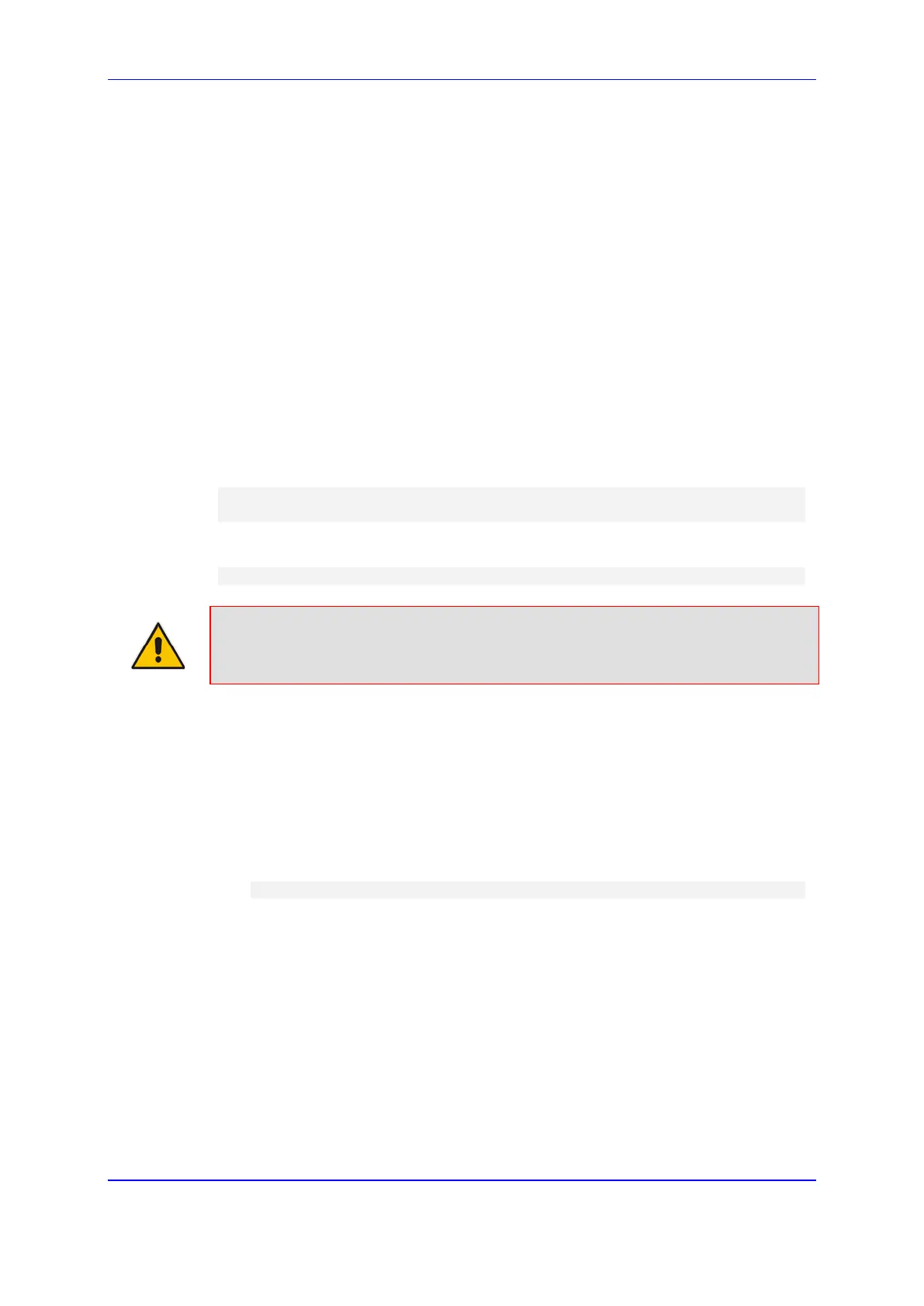